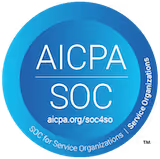The Significance of Databricks' Acquisition of Tabular: A Triumph for Open Frameworks in Data

In a strategic move that has sent ripples through the data analytics industry, Databricks announced its acquisition of Tabular, a data platform by the original creators of Apache Iceberg. This acquisition underscores the growing importance of open frameworks in the data landscape, heralding a new era of innovation, collaboration, and accessibility in data management, analytics and AI/ML initiatives.MinIO has always been a fan of Apache Iceberg, and is close to the team at Tabular. We have written many of the foundational pieces on how this technology works with a high-performance object store. We are excited for them in this next chapter.
The Rise of Open Frameworks
Open frameworks have revolutionized the way we handle data. Unlike proprietary systems that lock users into specific platforms and tools, open frameworks offer flexibility, interoperability, and transparency. They allow organizations to leverage the best tools available, integrate diverse data sources, and customize solutions to meet specific needs without being constrained by vendor limitations.
While some might question the motives behind Databricks’ acquisition of Tabular—especially given that the acquisition was announced during Snowflake’s annual user conference amid rumors that Snowflake itself was negotiating to acquire Tabular—Databricks does have the open-source bona fides to contribute positively to both the Iceberg and wider communities. This is achieved through their investment in Tabular and, perhaps more importantly, by effectively hiring the creators of the Iceberg format. Databricks has historically been a staunch advocate for open-source technologies, and the acquisition of Tabular aligns with its mission to foster an open data ecosystem.
While we support any expansion of open frameworks, whether material or ideological, what lessons can organizations learn from this very public battle? At the very least, it's clear that open table formats are the cornerstone of modern data infrastructure. When considering the future, organizations should focus on tools and technologies that can effectively leverage these powerful formats.
The Role of Open Frameworks in a Modern Datalake
Modern data lakes serve as centralized repositories for storing vast amounts of structured and unstructured data, providing the flexibility needed for advanced analytics and AI initiatives. Obviously, in order to be functional for AI use cases, modern datalakes must be built on highly performant, resilient and scalable storage.
The integration of open frameworks into these future-facing data lakes is transformative, as it enhances their already built-in scalability, flexibility, and interoperability. Open frameworks allow organizations to avoid vendor lock-in—especially as major vendors rush to support Iceberg—and offer the flexibility to integrate easily with various data sources and analytics tools and the flexibility to integrate easily with various data sources and analytics tools. Two capabilities that are crucial for building a robust, future-proof data infrastructure.
With the rise of open frameworks, like Apache Iceberg, Apache Hudi and Delta Lake, the role of modern data lakes in breaking down data silos, democratizing data access, and fostering a more collaborative and innovative data ecosystem is underlined. Below is a breakdown of those benefits.
Enhancing Interoperability and Flexibility
One of the key advantages of open frameworks is their ability to enhance interoperability. In today's data-driven world, organizations often rely on a myriad of tools and platforms to collect, store, analyze, and visualize data. Open frameworks act as a bridge, allowing these disparate systems to communicate seamlessly.
When open frameworks are deployed on MinIO, users amplify this inherent interoperability and flexibility. This powerful combination in a modern datalake ensures that your data can be accessed, managed, and processed efficiently wherever you need it: private clouds, public clouds, in colos, or at the edge. In the end, operational flexibility is no small thing.
Driving Innovation through Collaboration
Open frameworks thrive on collaboration. By their very nature, open-source projects invite contributions from a global community of developers, researchers, and data scientists. This collaborative approach accelerates innovation, as new ideas and solutions can be quickly developed, tested, and implemented. The fact is that open-source begets open-source, particularly in AI. In an era where innovation is being driven by data, it is clearer than ever before that the future of data infrastructure is open-source.
Democratizing Data Access
Perhaps the most profound impact of open frameworks is their role in democratizing data access. By lowering the barriers to entry, open-source tools make it possible for organizations of all sizes and budgets to harness the power of data. This democratization is crucial in leveling the playing field and ensuring that even small enterprises can compete in a data-driven economy.
This democratization is true wherever there are open frameworks, but this is especially true for infrastructure built on open-source object storage like MinIO. Such simple-to-use and deploy infrastructures further reduce costs and complexities, making powerful data storage, and AI and analytics capabilities accessible to a broader range of organizations. With MinIO and open frameworks, you can do more with less.
Take It Home
As we look ahead, it is clear that the principles of openness, collaboration, and accessibility will continue to drive the evolution of the data landscape. Databricks' strategic move to acquire Tabular underlines this drive. By embracing and investing in open frameworks, your organization would not only be enhancing its platform but also championing a future where data is more accessible, interoperable, and innovative than ever before. Principles that are critical to building out AI initiatives that are actually successful.
Don’t get left behind in your own infrastructure and begin building your organization's own modern datalake with an open format like Iceberg or Hudi and the world’s fastest object storage software. Reach out to us with any questions while you build on our Slack channel or drop us a line at hello@min.io.






